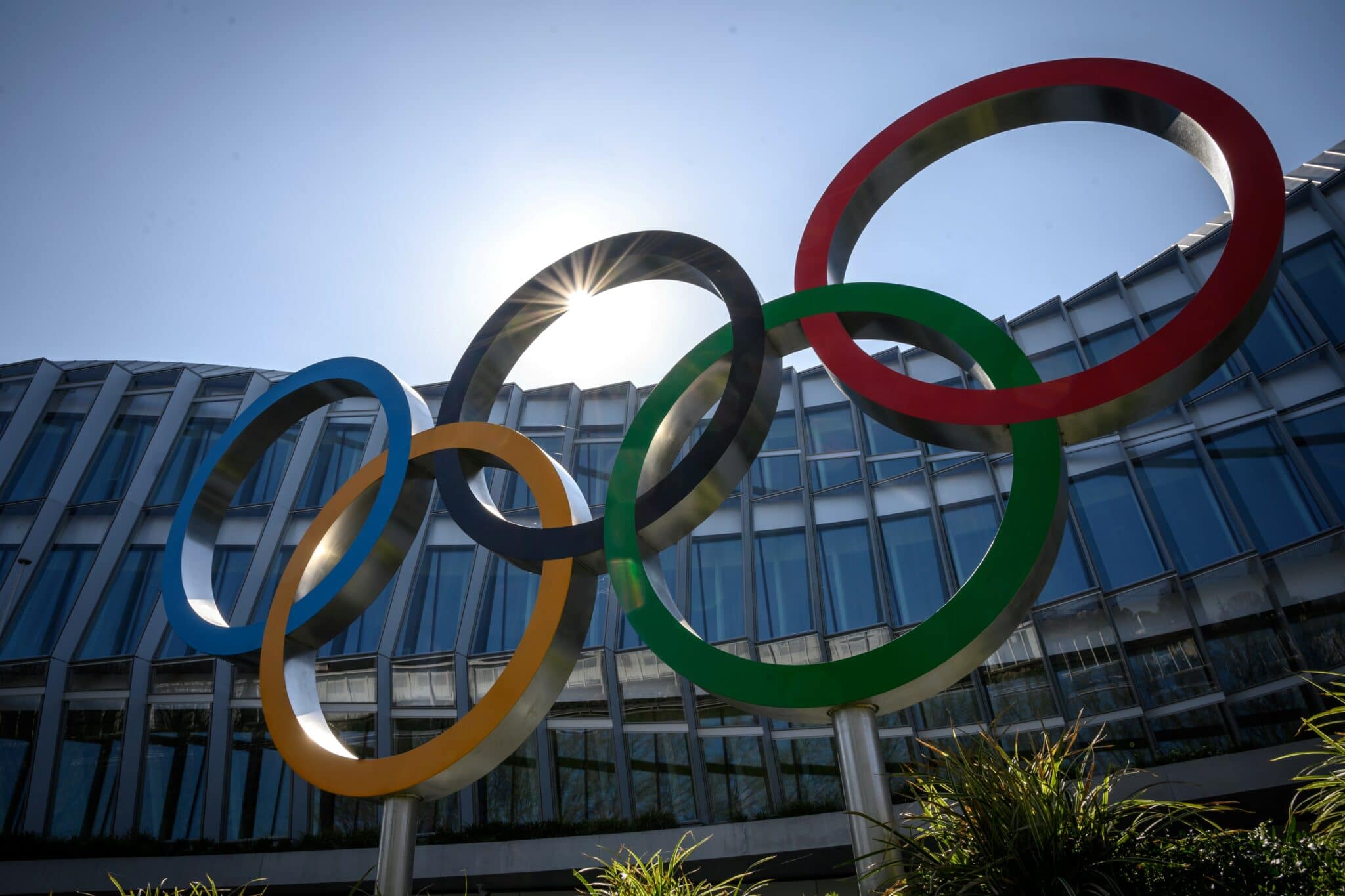The Olympic rings outside the headquarters of the International Olympic Committee (IOC) in Lausanne (Fabrice Coffrini/AFP/Getty)
The International Olympic Committee (IOC) has once again delayed its transgender guidelines for sport because of “very conflicting opinions”.
The new guidelines for international sports federations are not expected to be released until after the Beijing Winter Olympics in February 2022, three years later than originally intended.
The news was revealed by the IOC’s science and medical director, Dr Richard Budgett, who said the forthcoming advice would “prioritise inclusion” and “avoidance of harm”.
Current guidelines issued in 2015 allow trans women to compete in the women’s category if they keep their total testosterone level below 10 nanomoles per litre for 12 months.
Unfortunately, these blanket rules meant that Namibian sprinters Christine Mboma and Beatrice Masilingi, both cisgender women, were forced out of Olympic events because of their naturally high testosterone levels.
Budgett admitted earlier this year that the current system is “not fit for purpose” and needs overhauling. “I absolutely accept that, things move on,” he said, according to The Guardian.
“At the time the 10 nanomoles per litre was set because we thought that was the lower level for [cisgender] men. We know now that they go down to seven and [cisgender] women can be higher as well.”
After speaking to a Council of Europe conference on protecting and promoting the human rights of intersex and trans athletes in sport competitions, Budgett said the IOC’s approach would shift to a more individualised, sport-specific approach.
“There’ll be broad high-level guidelines – more like a framework,” he said, as reported by the Irish Times. “It’s the international federations who will determine the specific rules for their sports and their events.
“The particular changes from 2015 are the emphasis on the priority of inclusion, and on the avoidance of harm, but always bearing in mind the importance of fair and meaningful competition.
“We still have to agree on the framework. It’s challenging. But it will be published in a few months’ time – at the latest just after the Beijing Olympic Winter Games.”
He continued: “We’re very aware that sex, of course, is not binary. It’s a continuum. The sectors overlap. And so the solutions are not essentially going to be binary.”
This new approach recognises that there is no “one size fits all” strategy for sports, Budgett added. Going forward, it will be up to each sport to find the “sweet spot” between safety, fairness and inclusion.
“Transgender women are women,” he said, “but we also have to separate gender from eligibility. And eligibility needs to be sport specific in order to have this fair and meaningful competition at all levels, but especially at the elite level, where the stakes are that much higher.
“There’s going to be different criteria for different sports. If you compare archery to hockey to rowing, they require very different skills. And an elite athlete from one is unlikely to be an elite athlete in another. And we have to determine what really is a disproportionate or insurmountable advantage.”
